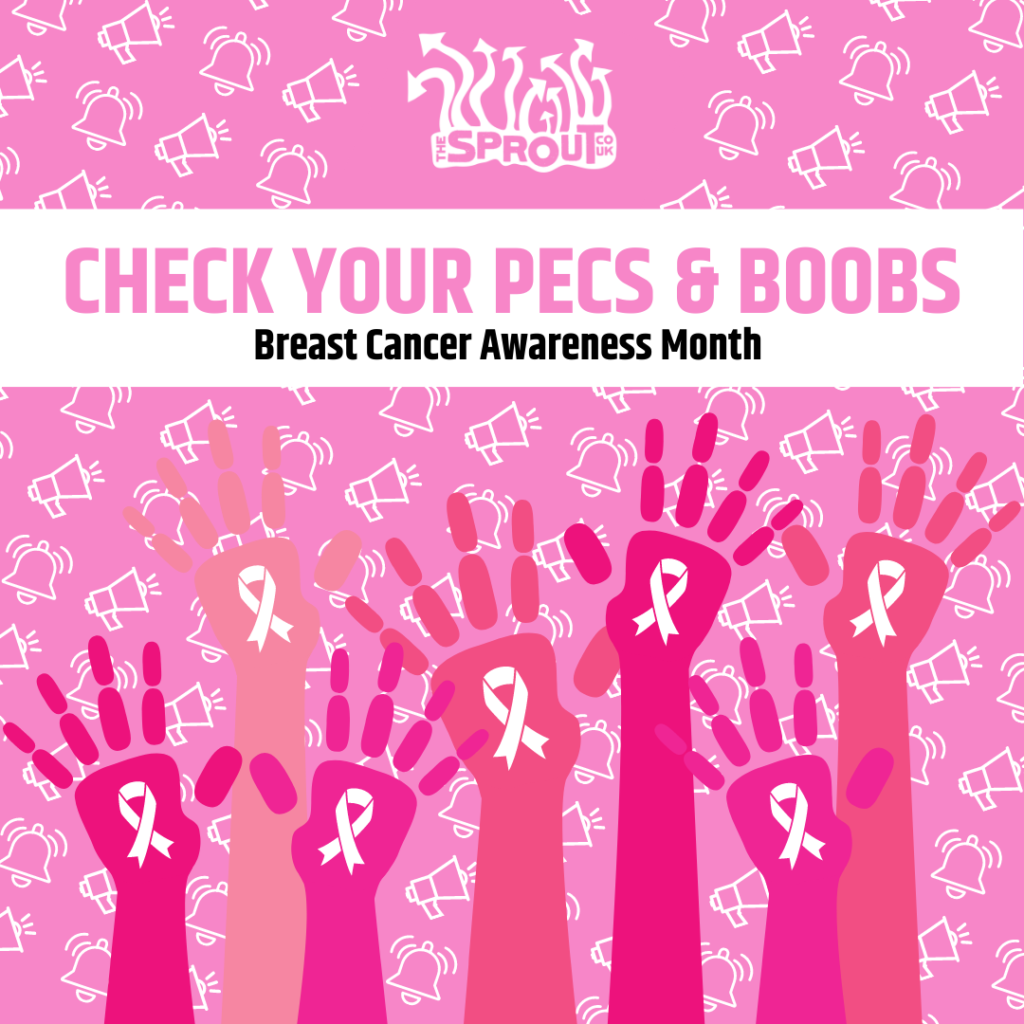It’s easy to shy away from sensitive topics such as breast cancer and to get overwhelmed with a lot of the scary statistics that are circulated.
For Breast Cancer Awareness Month this October, we wanted to share some facts and useful resources to raise awareness of breast cancer without fear-mongering.
How common is breast cancer in the UK?
- 1 in 7 women will be affected by breast cancer in their lifetime
- Around 400 men are diagnosed every year
- Every year, 5,0000 women under 45 years of age are diagnosed with breast cancer
- Approximately 62,000 people are diagnosed with breast cancer every year
What are the risk factors?
There’s a lot of misinformation about the risk factors of breast cancer. The truth is, not many people know exactly what causes breast cancer. Here is what we do know:
Sex at birth:
Even though women are more likely to get breast cancer than men, this doesn’t mean that men can’t get breast cancer. Men also have some breast tissue in their chest and under their armpit, so it is important they get anything unusual checked out too.
Genes:
Some people may carry the BRCA gene, which is a mutation in your cells. Having this gene means that your likelihood of developing breast cancer is 50-90% more likely than somebody without the gene. However, less than 10% of breast cancers are caused by inheriting and altered gene.
Lifestyle choices:
It’s estimated that 27% of breast cancer cases are preventable through lifestyle choices. Consuming an unhealthy diet, being overweight, drinking alcohol over the recommended guidelines, being physically inactive and smoking are all risk factors based on lifestyle choices.
Popular misconceptions: debunked
You may have heard a lot of fake news about the risk factors and causes of breast cancer. Let’s debunk those myths. These things do NOT increase your risk of breast cancer:
- Having breast implants
- Keeping your mobile phone in your chest pocket or bra
- Using deodorant
- Wearing a non-supportive or wrong-sized bra
Why should I check myself?
Although breast cancer is rare in younger people, it can still happen, as all genders have breast tissue, which develops at a young age. Around 12,000 people die from breast cancer every year in the UK, but if the disease is found early, it is very treatable.
In the UK, only women will be invited to routine breast screening from the age of 47-50 years old, which takes place every 3 years. For that reason, checking your boobs yourself is especially important for those who are not screened. Nearly 80% of young women diagnosed with breast cancer find their breast abnormality themselves.
How should I check myself?
You can check your boobs and pecs anywhere! Whether it’s lying down, in the shower, when looking in the mirror or when getting changed, knowing what is normal for you is the key to noticing any changes to your body. There is no one way to check yourself, but here are some helpful tips about what to check for:
- Look for changes in the skin texture eg. puckering/dimpling
- Look for swelling in your armpit or around your collarbone
- Look for nipple discharge
- Look for sudden changes in boob and pectoral size or shape
- Look for nipple inversion and changes in direction
- Look for a rash or crusting of the nipple or surrounding area
- Feel for lumps and thickening
- Feel for constant or unusual pain in your breast or armpit
References & Graphics: CoppaFeel, Cancer Research UK and Breast Cancer Now
Related Information
We are not experts in the medical field but are simply trying to raise awareness of breast cancer for breast cancer awareness month.
If you notice any symptoms of breast cancer, such as an unusual lump in your breast or any change in the appearance, feel or shape of your breasts, see a GP as soon as possible. The GP will examine you and then may refer you to a specialist breast cancer clinic for further assessment.

